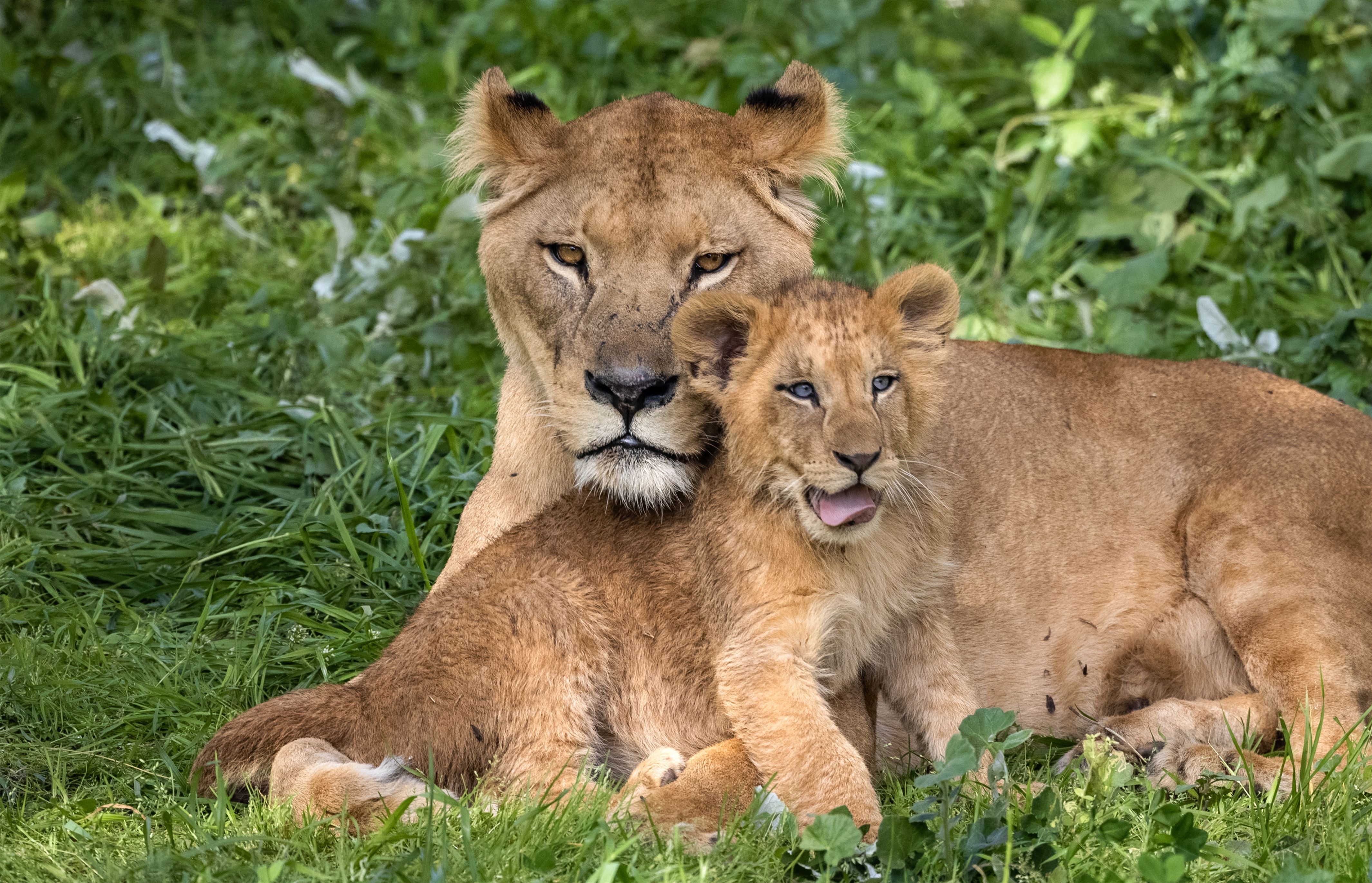Scientists in South Africa recently lured captive lions up to a fence with raw meat and then puffed the hormone oxytocin into their noses. The unusual experiment aimed to find out if the so-called love hormone could make the big cats friendlier to each other — and that’s exactly what happened.
Oxytocin is a natural warm-and-fuzzy drug; in humans, it can reduce blood pressure and cortisol levels, raise pain thresholds, and stimulate social interaction. The recent evidence that it has a similar effect on lions could be a boon to conservationists in Africa, who increasingly need to introduce strange lions to one another as natural territory shrinks. The study is published today in iScience.
Though oxytocin has beneficial social effects in humankind, it behaves differently in other species. Some apes may act in ways that release natural oxytocin when they’re grieving, and invertebrates like starfish use an oxytocin-type hormone to turn their stomachs inside out, to regulate food intake. This test was the first investigation of oxytocin’s effect on a social group of carnivores, so there was no guarantee that the lions would chill out when they huffed the hormone. But chill they did.
The researchers watched how the lions engaged in three types of behaviours when on and off the oxytocin. In one instance, the animals were given a pumpkin to play with; in another, they were given a popsicle of frozen blood; and in a third scenario, the researchers played a recording of a roar for the lions, imitating a territorial challenge from an unfamiliar cat.
“The most impressive measurement was the decrease in territorial roaring,” said study author Jessica Burkhart in an email to Gizmodo. “It is common practice for lions to roar in response to unfamiliar roars and in this case, after given oxytocin, the roars actually ceased completely.”
When in possession of the pumpkin, lions on oxytocin would also allow other lions to come much closer, a sign that the hormone increased the cats’ social tolerance. Burkhart, a neuro-behaviorist at the University of Minnesota Lion Centre, said in a release that the effects of oxytocin were obvious even on the lions’ faces. “You can see their features soften immediately, they go from wrinkled and aggressive to this totally calm demeanour,” she said.

The lions refused to share their blood popsicles, oxytocin or no. Burkhart noted that this was probably an instinct that kicked in because the object involved was food, not just a toy. But the cats received a very low dosage of the drug (10 IU) even compared to the doses some dogs have received (40 IU), despite being a fraction the lions’ size. Perhaps with more oxytocin, the cats would even be generous with their bloody treats.
The research indicates that oxytocin could be used to help manage lion populations in the future. As human habitation encroaches on lion territory, the animals are sometimes transported to private reserves. That results in lions from different prides sharing land and mixing together. This can be a jarring experience for the cats, but perhaps a dose of the love hormone would make the transfer more peaceful for everyone.
“We will be able to administer the oxytocin as the animals are anesthetized and moved to the new location,” Burkhart said. “Ideally, this will decrease the animals’ fear and increase the animals’ curiosity and desire to bond, giving them a better first impression of their new social environment.”
The practice is already being tested with the collaboration of carnivore veterinarians and conservation groups. Members of the team are now also testing oxytocin’s effect on other carnivores like tigers, leopards, and hyenas.
